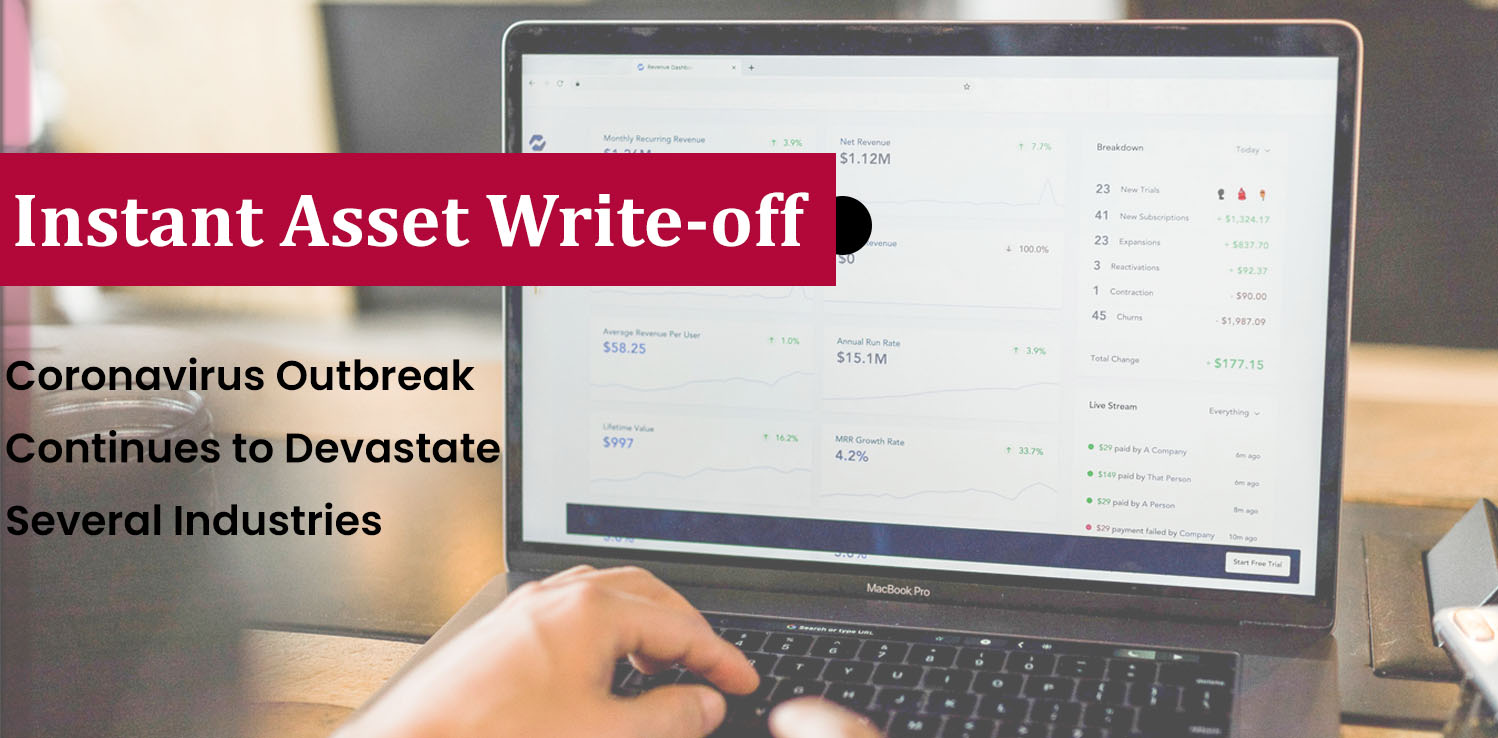As the coronavirus outbreak continues to devastate several industries and economies around the globe, many Australia-based SMEs are now facing significant challenges. With the aim to tackle the drastic impact and financial challenges for small businesses, the Federal Government has introduced new changes in the Income Tax Assessment Act of 1997. In that event, the amendments will increase the allowance for Instant Asset Write-Offs (IAWO) and introduce the new Backing Business Investment (BBI) incentive. With this, the primary goal of IAWO is to extend favorable tax treatment to SMEs and thereby enhance the financial recovery process of economy at large.
For detailed knowledge on this scheme, let’s take a look at hows and whys of the ‘ Instant Asset Write Off Scheme For SME’s:
- What is Instant Asset Write Off for SME’s? The IAWO scheme allows the eligible SMEs to write off a particular portion of any asset that is purchased or installed in a previous FY. This means that if the total cost of the asset falls within the designated threshold, the business owner can easily claim partial or entire deduction on the following sub-categories:
- Multiple chains of assets – until the cost of each individual asset is lesser than the relevant threshold.
- Newly purchased or second-hand assets (Where the total cost of an asset includes the principal amount and any additional amount spent on transportation, improvisation, installation, and logistics).
- However, ‘Assets’ that are excluded from the simplified depreciation rules are NOT subject to any benefit under this scheme.
- Recent changes and amendments: Since 2nd April 2019, the Instant Asset Write-off (IAWO) was initially barred at $30,000. However, in the light of the Covid-19 pandemic and its drastic impact on the start-up ecosystem, the Australian Government has raised the threshold limit to $150,000. With the aim to overhaul the financial woes and stimulate the economy again, this ‘expanded write-off’ now also covers the SMEs with a turnover of up to $500 million. Stretching the threshold limit also implies that an additional 5,300 businesses that roughly employ 2 million Australians will now be able to access the tax write-off benefits.
- Eligibility Criteria: As per the latest guidelines issued by ATO, a business organization must comply with the following eligibility criteria to claim reasonable deductions and benefits:
- Assets purchased between 2nd April 2019 – 11th March 2020 will qualify for a tax write-off of $30,000.
- Under Division 40 of the Income Tax Assessment Act, both tangible assets such as plant, equipment, and specified intangible assets like copyright, designs, and patents are qualified.
- For writing-off an asset purchased after 12th March 2020, the organization must hold a turnover of less than $500 million in the last FY. On the other hand, while writing-off an asset purchased between 2nd April 2019 to 11th March 2020, the business should demonstrate a turnover of less than $50 million in the last FY.
- Irrespective of the investment and industry background, the total asset cost must be less than the current $30,000 threshold.
Note: As an effective tax deduction scheme, IAWO doesn’t provide benefits to the business operating at a loss or breakeven situation. Therefore, it is imperative to discuss the IAWO tax-related qualification criteria and consequences, with your tax accountant.
- Multi-dimensional benefits of the instant asset write-off scheme for SME’s: With the primary goal to mitigate the negative impact of the Covid-19 outbreak and enhance the financial solvency, the Australian Government has enacted the latest IAWO guidelines. The higher IAWO threshold limit provides cash flow benefits for businesses where they can deduct purchases of eligible assets and gain tax-related benefits immediately. Additionally, this scheme will also cover the following significant aspects:
- Automatic grants of up to $25,000 for the eligible business organization (with a turnover of up to $50 million)
- Defer or even waive off the income tax assessments, fringe benefits tax assessments, and related elements up to 4 months
- SMEs (that employ full-time or part-time workers) will receive a minimum amount of $2,000.
- Wage subsidies are likely to benefit around 117,000 apprentices, working for employers who employ less than 20 employees.
- How can RSGAccountants help you? Without proper knowledge of law and finance, it is impossible to identify and determine asset-class, threshold limit, and changing eligibility criteria for the IAWO. Additionally, understanding the technicalities and implications of the Income Tax Assessment Act and recently introduced regimes is a complex task. That’s why, it is important to seek professional accounting and tax advice regarding aspects like the purchase and depreciation limit of business assets, scope to leverage the Instant Asset Tax Write Off properly, preparation of financial documents, and so on. With consistent discussions and a flexible approach, RSG can help your economically-distressed business to bridge the gap between crisis mode and action mode. We just don’t crunch numbers or collect information; we also provide tailor-made practical advice to individual businesses with diverse industry backgrounds. To know more, we are just a call away!
Conclusion
The latest amendments in the ‘Instant asset write-off’ scheme were the need of the hour. Amidst this coronavirus crisis, the scheme will stabilize several SMEs as well as gear up the economy to take the best foot forward.
